Abstract
Paediatric outpatient utilisation in a district general hospital was studied for 20 general practices that covered a population of 26,433 children. The actions taken by paediatric staff were analysed for 487 new referrals and 2784 review attendances (the latter in 1630 children) over an eight month period. New referral rates from different general practices varied between 3.7 per thousand children 0 to 15 years and 29.6 with a mean of 13.7, equivalent to 19 per thousand per year. (The national mean based on health district populations is 21.2 per year.) A total of 63% of new referrals and 49% of review patients were aged under 5 years. Over the study period 2.2% of children under 5 years in the population were referred as a new patient, equivalent to 3.1% per year, and 1.3% of children aged 0 to 15 years were referred, equivalent to 1.8% per year. Review attendances on one or more occasion occurred in 6.5% of children under 5 years over the study period, equivalent to 9.2% per year, and for age 0 to 15 years, 4.8% attended once or more times over the study period, equivalent to 6.7% per year. The review attendance rate per thousand child population per practice varied between 59 and 160 with a mean of 81.9. New patients formed 14.8% of the total attendances (the national mean is 18.3%). Review attendance rates were significantly lower when the general practice was large. Socioeconomic factors suggested by a high proportion of children in the general practice list were associated with a high review attendance rate. Altogether 27.0% of new referrals were seen once only and 32.8% had no tests done. The most common reason for attendance was asthma (11% of new and 19% of review patients). The second commonest was for fits (8.4% of new referrals and 4.7% of review patient attendances).
Full text
PDF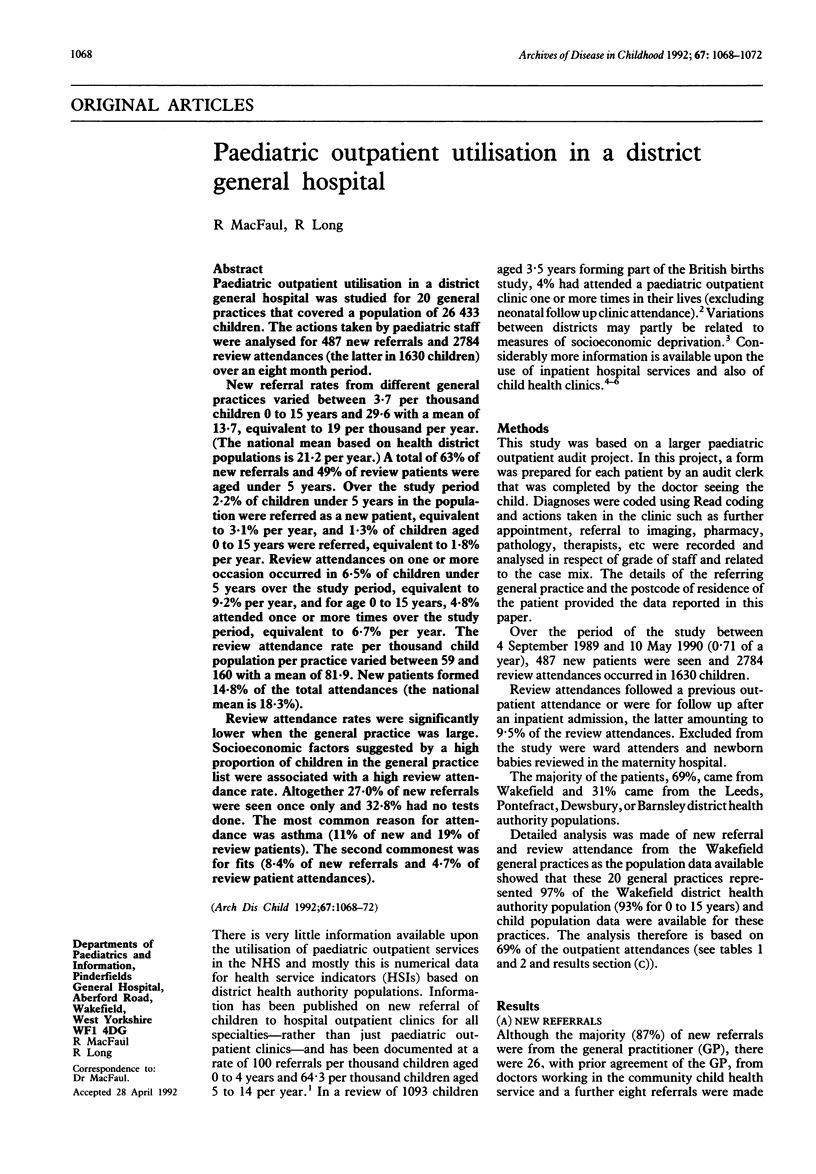
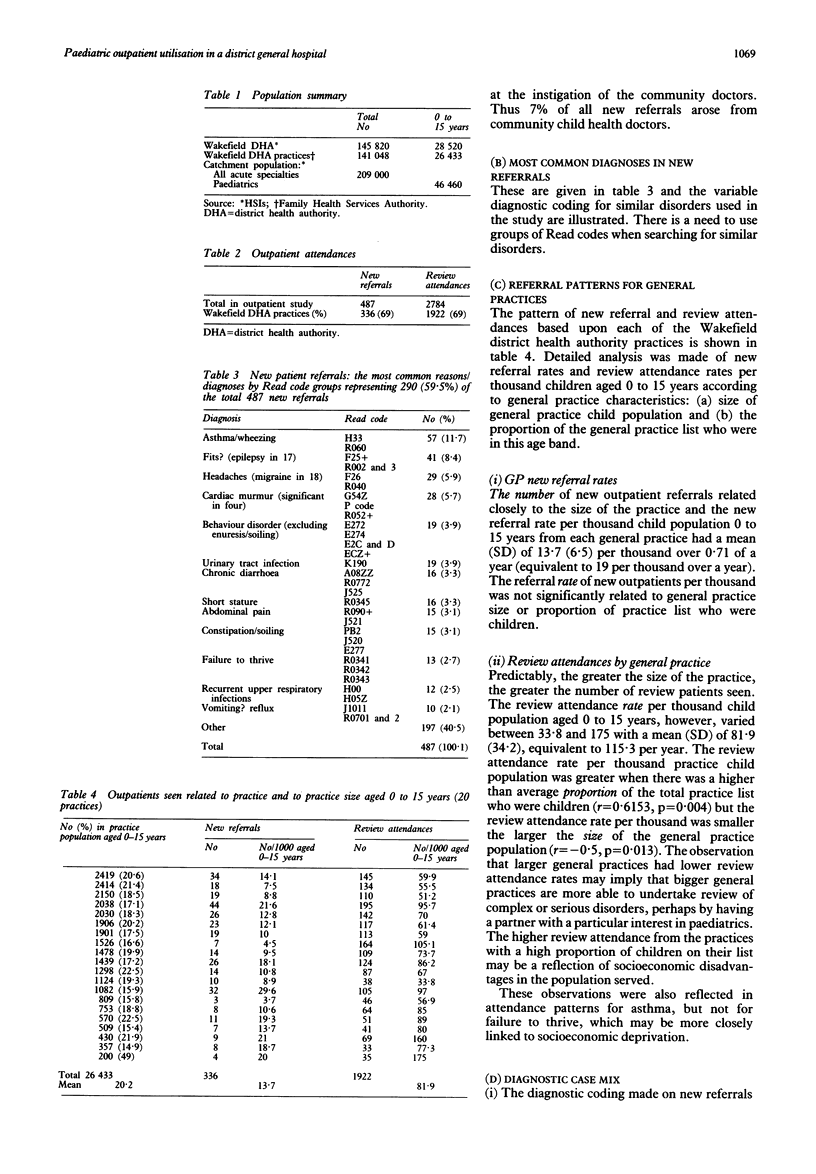
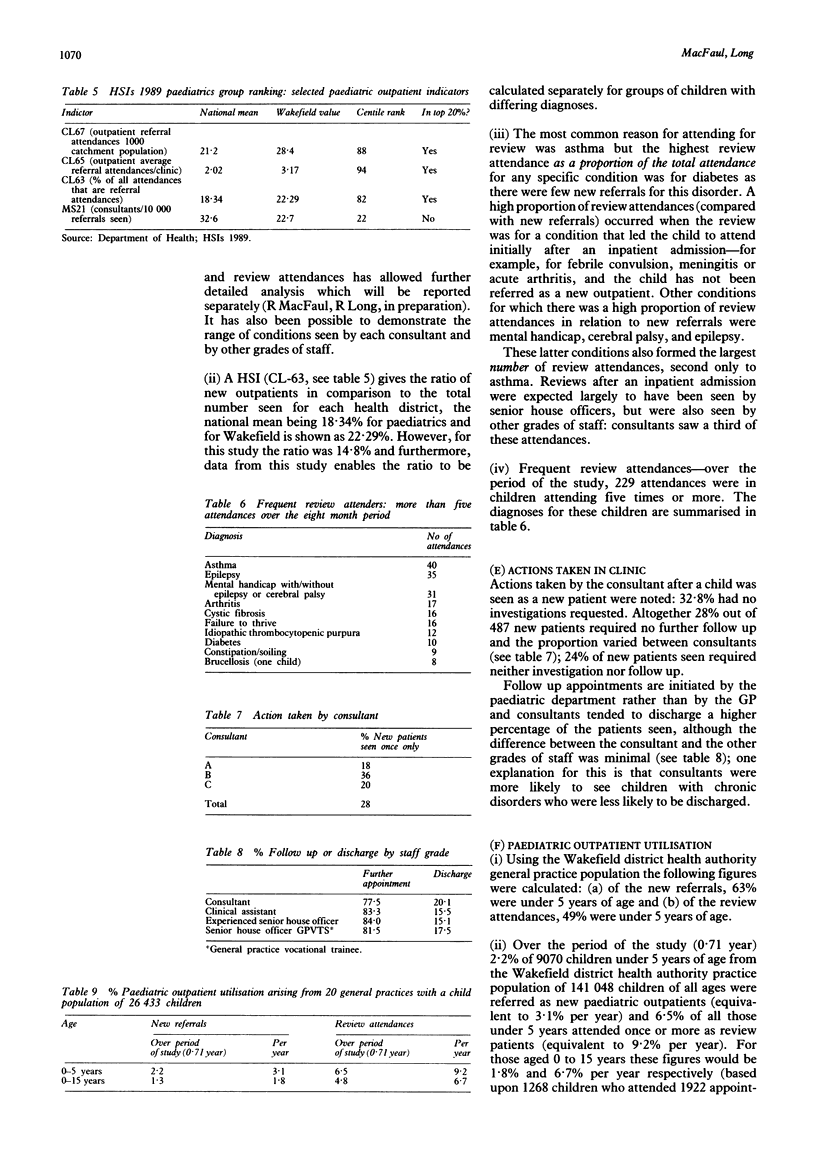
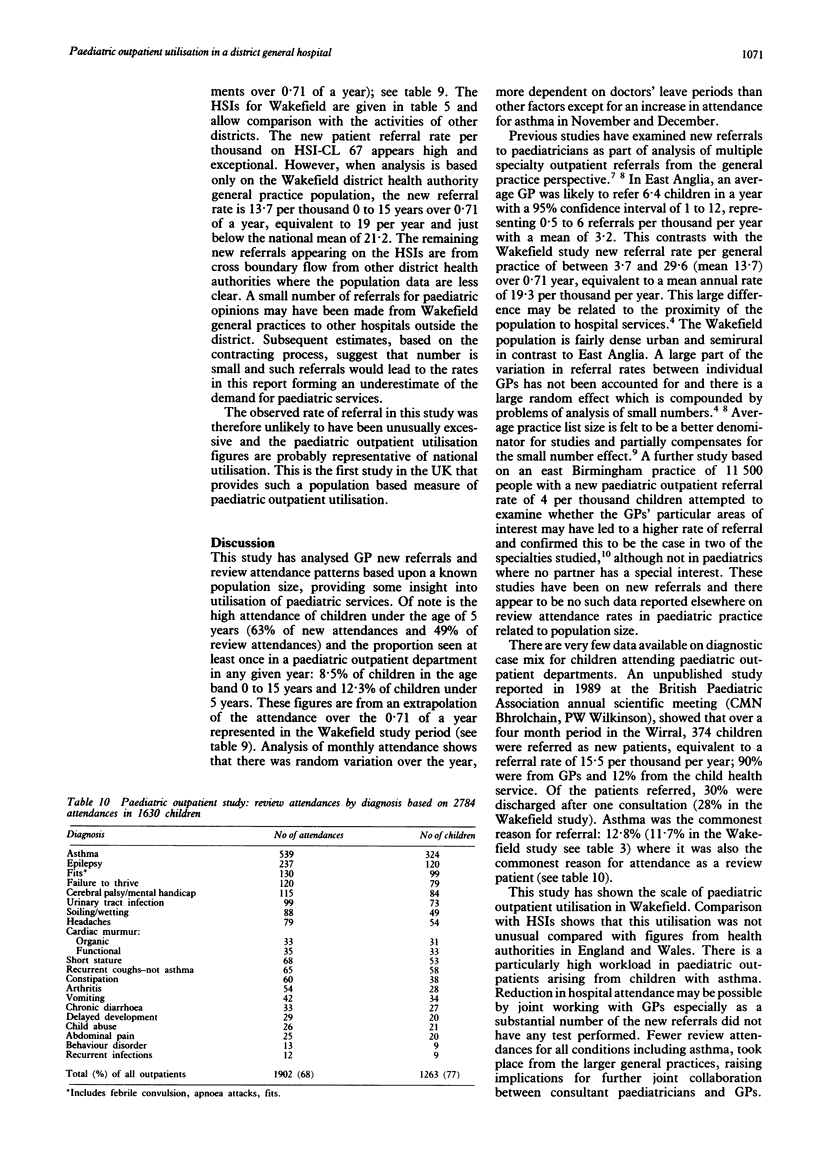
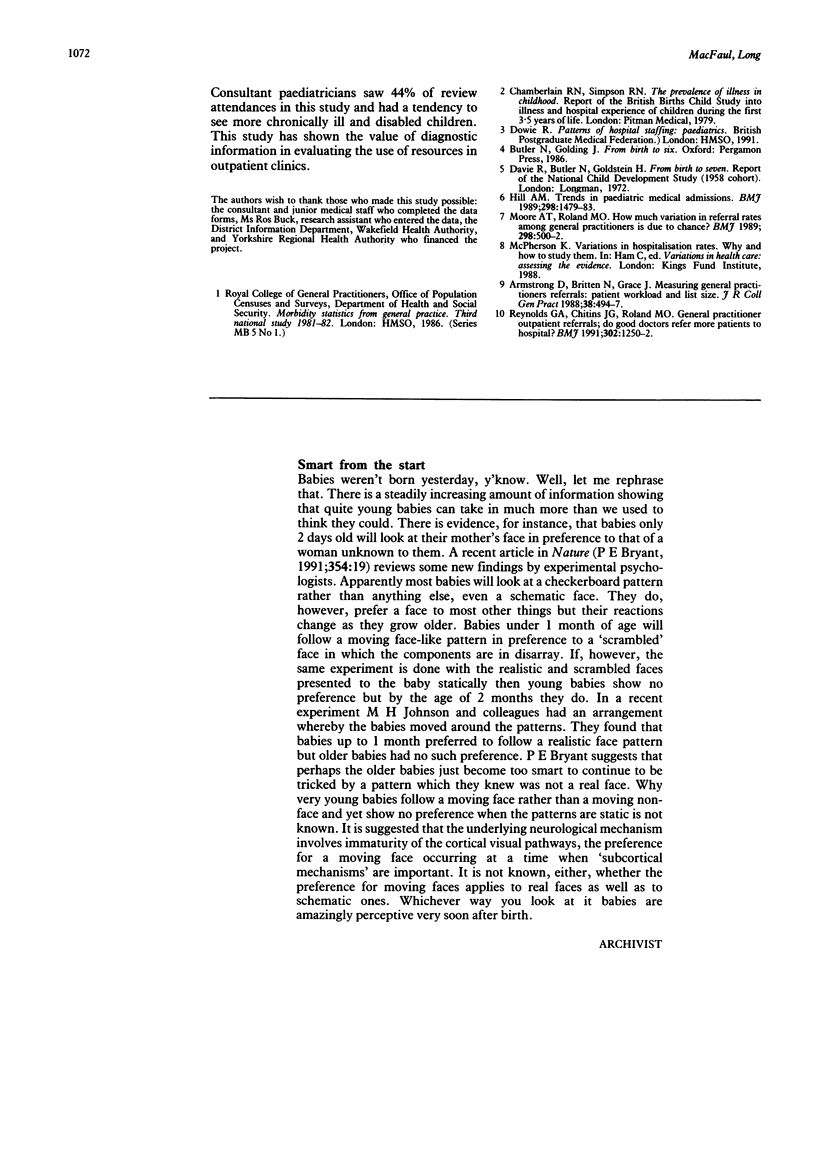
Selected References
These references are in PubMed. This may not be the complete list of references from this article.
- Armstrong D., Britten N., Grace J. Measuring general practitioner referrals: patient, workload and list size effects. J R Coll Gen Pract. 1988 Nov;38(316):494–497. [PMC free article] [PubMed] [Google Scholar]
- Hill A. M. Trends in paediatric medical admissions. BMJ. 1989 Jun 3;298(6686):1479–1483. doi: 10.1136/bmj.298.6686.1479. [DOI] [PMC free article] [PubMed] [Google Scholar]
- Moore A. T., Roland M. O. How much variation in referral rates among general practitioners is due to chance? BMJ. 1989 Feb 25;298(6672):500–502. doi: 10.1136/bmj.298.6672.500. [DOI] [PMC free article] [PubMed] [Google Scholar]
- Reynolds G. A., Chitnis J. G., Roland M. O. General practitioner outpatient referrals: do good doctors refer more patients to hospital? BMJ. 1991 May 25;302(6787):1250–1252. doi: 10.1136/bmj.302.6787.1250. [DOI] [PMC free article] [PubMed] [Google Scholar]


